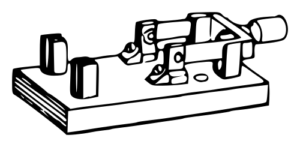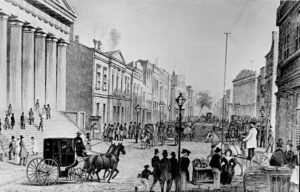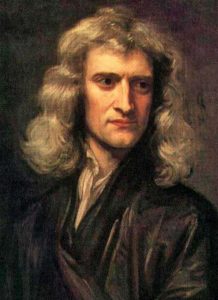 The Radio Shack stores played a big role in my childhood. My first memory of Radio Shack is from around 1975 when I was six. I went with my dad when he bought new speaker cables. We went others times whenever our TV stopped working. Dad would take the back cover off, pull out some vacuum tubes, and take them in to Radio Shack to use the tab tester. Sometimes there would be a line for the tester. If the tester said a tube was weak, dad would go over to a counter and ask the man there for a new one.
The Radio Shack stores played a big role in my childhood. My first memory of Radio Shack is from around 1975 when I was six. I went with my dad when he bought new speaker cables. We went others times whenever our TV stopped working. Dad would take the back cover off, pull out some vacuum tubes, and take them in to Radio Shack to use the tab tester. Sometimes there would be a line for the tester. If the tester said a tube was weak, dad would go over to a counter and ask the man there for a new one.
How Stocks Work

For many years nobody could explain to me the rational basis of the stock market. They told me that prices were controlled by the law of supply and demand. Investors expected the the price of shares in successful companies to rise and so they bought them. This demand then drove the price up. Those who got in early enough would make money when they later sold their appreciated shares. This is all true, but it did not answer my question: why do shares have value in the first place.
Review of the Sun Joe CJ603E Wood Chipper
Ever since I first saw them in a catalog years ago I have wanted own one of those garden waste chippers. Those I saw 30 years ago were made of metal and cost far more than I could justify paying. But consumer goods are getting cheaper and home wood chippers are no exception. One reason they are cheaper is that the stamped and folded bodies of heavy-gauge sheet metal have been replaced by molded plastic. Still the prices seemed too low for a useful machine. Surely they would break and jam unless the openings had been made deliberately small enough that nothing which would put a strain in the mechanism could be inserted in which case the machine would be of little practical value.
Where Did Sputnik Get its Name?
On October 5, 1957, the Soviet newspaper Pravda announced that the Soviet Union had launched a 184 pound object into Earth orbit. That first artificial satellite has since come to be known in the English-speaking world as Sputnik. In the West it is now widely assumed that the Soviets chose the word sputnik as the name for their satellite because it means “fellow traveler.” This is not what actually happened.
Updating Webmin’s Self-Signed Certificate
When SSL is enable in Webmin it creates a self-signed certificate which is stored in the file /etc/webmin/miniserv.pem. I recently upgraded a server from Debian 7 to Debian 9 and discovered that Webmin would no longer start.
Darwin and Pasteur

On November 24th, 1859, the naturalist Charles Darwin published a book entitled On the Origin of Species by Means of Natural Selection, or the Preservation of Favoured Races in the Struggle for Life. In it he offered his views on how God had created the living world. He summarized his overall view thus:
Authors of the highest eminence seem to be fully satisfied with the view that each species has been independently created. To my mind it accords better with what we know of the laws impressed on matter by the Creator, that the production and extinction of the past and present inhabitants of the world should have been due to secondary causes, like those determining the birth and death of the individual. When I view all beings not as special creations, but as the lineal descendants of some few beings which lived long before the first bed of the Silurian system was deposited, they seem to me to become ennobled.
Newton’s Views on Science and Theology
For the second edition of his Principia in 1713 Newton wrote an essay known as the General Scolium (introduction) in which he defends his views on several scientific and theological questions. There is an English translation of the expanded version from the third edition.
In this essay he hints at his theological views which during his lifetime were only shared in private. A few were published after his death, but the vast majority of Newton’s papers on all subjects except physics became available for scholarly study only in the middle of the 20th century, more than 200 years after his death.
His discussion of the meaning of the word “god” is considered a subtle dig at Trinitarianism. He argues that “god” is a title, not an intrinsic attribute of any person. A God exists when a superhuman being has a dominion. What he does not make explicit is his subordinationist christology: that Jesus, though “God”, is God only in the relative sense that he is a superhuman being and rules over a domain. But in Newton’s view this does not make him the Supreme Being or True God of monotheism because his domain is delegated to him. (He did make this understanding explicit in his unpublished writings.)
He goes on to argue that there is a supreme God who exists by necessity and has always existed. He sees the supreme God as a non corporal being, without a body or physical location. If this concept is impossible to understand, it is only because it is totally alien to human experience.
Institutional Memory
Knowledge is a slippery thing. If we don’t take care we can lose it. Organizations loose it when members leave or retire without passing it on to their replacements. Suddenly the organization does not know how to do part of its job and has to spend time and money finding out again. Sure, sometimes new blood brings fresh ideas which work better, but more often the organization just makes painful mistakes until the lost experience can be regained.
Human societies experience the loss of Institutional Memory when one generation fails to pass enough of what it has learned on to the next.
As a child in the 1970’s I watched family dramas on TV. By “family” I mean that they showed children growing up, having adventures, and dealing with situations in life which were new for them. I particularly remember The Swiss Family Robinson. The children often approached difficult situations by doing what they had seen their parents do. When things did not work out they often discussed the problem with their parents and then tried again.
These shows were entertainment, not instructional films. The writers were not primarily conveying lessons to children. They were creating dramatic tension and having their characters resolve it in the tradition of the Western story arch. Getting advice from persons with more experience (often parents) was a natural part of the story.
Fire Dogs

The following story is from Lev Tolstoy’s First Russian Reader of 1875. This is my translation. As far as I know it has never before appeared in English.
Electrical Power and Power Loss
Basic Electrical Units
A volt is a unit of electrical potential. Electrical potential in turn is the force which a power source (such as a battery) applies to a connected device in order to push electrons through it. Electrical potential (voltage) is comperable to the presure which a pump applies to a plumbing system in order to push water through the pipes.













